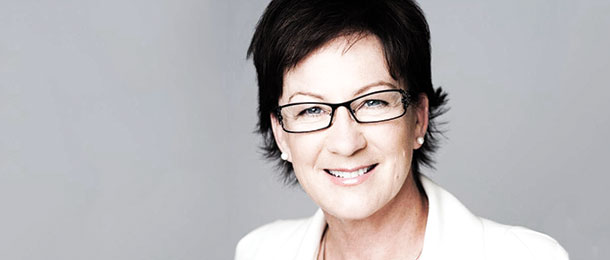The stakes are high. When I last looked at the ATO SMSF statistics, the funds under management (FUM) sitting there were around $600 billion spread across more than 1 million trustees and members and over 500,000 funds. It’s the largest component of the superannuation system, and those who have opted for this form of retirement savings are seriously committed to trying to ensure they will be self-sufficient in retirement, whether they are now retired or when they finally leave the workforce.
For many of these people, the emergence of the SMSF specialist to assist them navigate this part of the superannuation world has become critically important. Research report after research report highlights there is a sizeable proportion of trustees and members who value the input of their specialist adviser, and it’s my strong suspicion that demand for their services can only increase. The sun is rising on this sector, not setting.
A good case in point was the recent research done jointly by the SMSF Association and Commonwealth Bank of Australia that highlighted, contrary to what many in the industry believed, that women were more actively involved in the managing of SMSFs than had been previously thought. Pleasing as this finding was, it still highlighted a gap in the market showing where women need to take better advantage of the specialist SMSF advice on offer.
Given the shifting regulatory requirements to provide advice to SMSF trustees, it’s important to reflect on the universal elements of being an SMSF professional common to the range of occupations servicing SMSF trustees. No one exits their undergraduate studies as an SMSF specialist. From fields such as accounting, financial planning, auditing or the law, individuals then decide, due to client demand or business opportunity, they want to add significantly to their knowledge base and specialise in these types of super funds.
So what does this actual specialisation mean? In simple terms, it’s about acquiring competence in all matters superannuation, and especially as they pertain to SMSFs. For example, financial planners will have broad knowledge about insurance, financial products and asset allocation, but will be lacking in how this knowledge dovetails with an SMSF structure and how it influences the advice they give clients.
It also relates to what type of advice they give clients. SMSF trustees and members have different needs. Some are looking for mentoring to ensure they have the requisite skills to manage their SMSF. For them, the self-managed in SMSF means exactly that. Others will want far more comprehensive advice, either for time reasons or because having a hands-on specialist gives them the peace of mind they want while still reserving the final say.
This means it is essential specialist SMSF advisers understand the types of services clients require and, just as importantly, the extent to which they want to provide those services that dovetail with their business model. Accountants would have to consider whether they focus primarily on the transactional aspects of SMSF activity or pursue an interest in the investment strategy aspect. The financial planner would have to decide whether to be a mentor or provide more of a hand-holding service.
Determining the service model to provide dictates, to a large extent, the regulatory requirements that must be met. Do accountants want to move into the world of SMSF advice post 1 July and do they have the necessary licensing to do so? On that date accountants will need an Australian financial services licence (AFSL) if they want to advise SMSFs on anything outside strict accounting services. It requires working out a business plan, what services are to be delivered and then ensuring they are compliant.
Compliance is not just about operating in accordance with the legislation. Perhaps more importantly, it demonstrates a commitment to professionalism clients have a right to expect. It means advisers understand their professional responsibilities and how this translates into better services for their clients, which, in turn, underpins their business model.
The government can legislate to set professional standards and professional bodies, such as the SMSF Association, can proffer expectations about what constitutes good professional behaviour. However, professionalism is an individual responsibility to respond to the legislation and client expectations.
This demands of SMSF specialists a commitment to keep up to date with what’s happening across the industry. In a world of rapid change this is imperative and it means the continual upgrading of skills, certifying competencies and seeking out opportunities that improve abilities to service clients. It’s not an easy row to hoe, but for those who do, the rewards are substantial.



